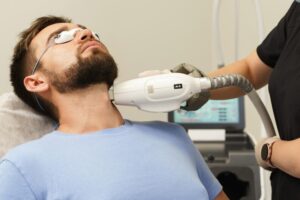
Plantar fasciitis causes pain and inflammation in the heel and sole of the foot due to strain and overuse of the plantar fascia ligament. It significantly impairs mobility and quality of life, necessitating effective treatment. Physioveda, a leading physiotherapy clinic in Dubai, offers comprehensive services tailored to alleviate symptoms and address the root causes of plantar fasciitis. In this article, we delve into the various treatment modalities provided by Physioveda and how they aid individuals suffering from plantar fasciitis to regain mobility and comfort.
Understanding Plantar Fasciitis:
Before exploring treatment options, it’s crucial to understand the underlying mechanisms of plantar fasciitis. The plantar fascia, a thick band of tissue, runs along the bottom of the foot, connecting the heel bone to the toes. Excessive strain or irritation of this ligament leads to sharp pain and stiffness, especially during the first steps in the morning or after prolonged periods of rest. Risk factors include excessive physical activity, obesity, improper footwear, and foot mechanics issues.
Plantar Fasciitis Treatment:
Plantar fasciitis is a common cause of heel pain, affecting the thick band of tissue (plantar fascia) that runs across the bottom of the foot, connecting the heel bone to the toes. This condition often arises due to overuse or stress, leading to inflammation and microtears. It manifests as sharp pain, typically felt with the first steps in the morning or after prolonged periods of rest. Risk factors include high-impact activities, obesity, and improper footwear. Treatment often involves rest, ice application, stretching exercises, and the use of supportive footwear or orthotics. Physical therapy and nonsteroidal anti-inflammatory drugs (NSAIDs) can also aid in pain management. In chronic cases, more advanced interventions like corticosteroid injections or surgery may be considered. Preventative measures include maintaining a healthy weight, wearing supportive shoes, and avoiding excessive strain on the feet. Proper care can significantly alleviate symptoms and improve quality of life.
Physioveda’s Approach to Plantar Fasciitis Treatment:
Physioveda adopts a multidisciplinary approach to treating plantar fasciitis, combining various therapeutic techniques to address both symptoms and underlying causes. Their team of experienced physiotherapists, chiropractors, and sports medicine specialists collaboratively develop personalized treatment plans tailored to each patient’s unique needs.
- Manual Therapy:
Physiotherapists use hands-on techniques such as massage, joint mobilization, and myofascial release to alleviate muscle tension, improve flexibility, and promote healing in affected tissues. Manual therapy reduces pain and inflammation while restoring proper biomechanics to the foot and ankle. - Exercise Rehabilitation:
Exercise rehabilitation strengthens foot, ankle, and lower leg muscles, enhancing stability and reducing the risk of recurrent injury. Therapists prescribe specific exercises targeting the plantar fascia and surrounding muscles to improve flexibility, strength, and proprioception. These exercises may include calf stretches, toe curls, and balance exercises tailored to the individual’s fitness level and goals. - Orthotic Therapy:
Physioveda recommends custom orthotics to provide additional support and cushioning to the foot, redistributing pressure away from the inflamed plantar fascia. Customized orthotic solutions address biomechanical imbalances, correct gait abnormalities, and alleviate pressure points. Orthotic therapy optimizes foot alignment and reduces excessive pronation or supination, relieving pain and enhancing overall foot function. - Electrotherapy Modalities:
Advanced electrotherapy modalities such as ultrasound, laser therapy, and shockwave therapy accelerate tissue healing, reduce inflammation, and relieve pain. These non-invasive techniques provide immediate relief while promoting long-term recovery from plantar fasciitis. - Education and Lifestyle Modifications:
Patient education empowers individuals to make informed decisions and adopt healthy lifestyle modifications. Physioveda educates patients about proper footwear selection, biomechanical principles, and activity modification strategies to prevent symptom exacerbation. By addressing contributing factors like excessive weight, poor posture, and repetitive stress, patients optimize their recovery and minimize the risk of recurrence.
Conclusion:
Plantar fasciitis can significantly impact an individual’s quality of life, but with the right treatment approach, recovery is possible. Physioveda offers a comprehensive range of services aimed at relieving pain, improving function, and restoring mobility for individuals suffering from plantar fasciitis in Dubai. Through a combination of manual therapy, exercise rehabilitation, orthotic therapy, electrotherapy modalities, and patient education, Physioveda’s experienced team provides holistic care tailored to each patient’s unique needs. If you’re struggling with plantar fasciitis, seek professional help and take the first step towards pain-free living with Physioveda. you can contact physioveda anytime they are always there to help you.






